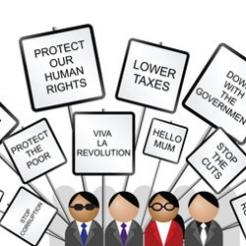Charities should be required to publish their expenditure on campaigning and political work in their annual returns, along with how much of their income they receive from public sources, the Public Administration Select Committee has said.
Despite noting figures from the Charity Commission showing that there are few cases of inappropriate political activity by charities, the committee of MPs still felt charities should be more transparent about their political and campaigning activities.
In their post-legislative scrutiny report into the Charities Act 2006, the PASC said it had heard conflicting evidence on whether the restriction on political campaigning should be tightened or relaxed, with neither side making a compelling case.
Because there is little “inappropriate activity”, it did not recommend any changes to the rules on political campaigning, but recommended declarations in annual returns as to spend.
Joe Irvin, CEO of Navca, attacked the plan as “absurd”: “Legislation to make charities release data on the cost and hours spent on lobbying is absurd – and would mean charities operating on an entirely different footing to private companies. Surely we want mental health charities to speak up for the people they represent without fear or favour.
“This can be seen as a stealth attack on the role of many charities to speak up independently.”
Declare statutory income
The PASC also recommended that charities above the registration threshold to declare on their annual returns how much of their income they got from government sources by way of grants or other payments, and how much was garnered from private donations.
And it concluded: “We recommend that ministers should make a written statement to Parliament whenever a decision is made to provide government support by direct grant to a charity which is involved in political campaigning.”
Think tanks
Separately, the Committee also considered whether think tanks should be allowed to claim charitable status, and decided: “While think tanks may not fit the typical image of a charity, we accept that, as organisations for the furthering of education, they have a place inside our charity sector, provided they are established for a charitable purpose and for the public benefit.
“Think tanks such as the Smith Institute and Atlantic Bridge failed to maintain the correct balance between political activity and neutrality as required from think tanks with charitable status, though we are concerned by an apparent lack of consistency in the application of rules to this sector.
“The Charity Commission…must demonstrate objectivity and impartiality.”








